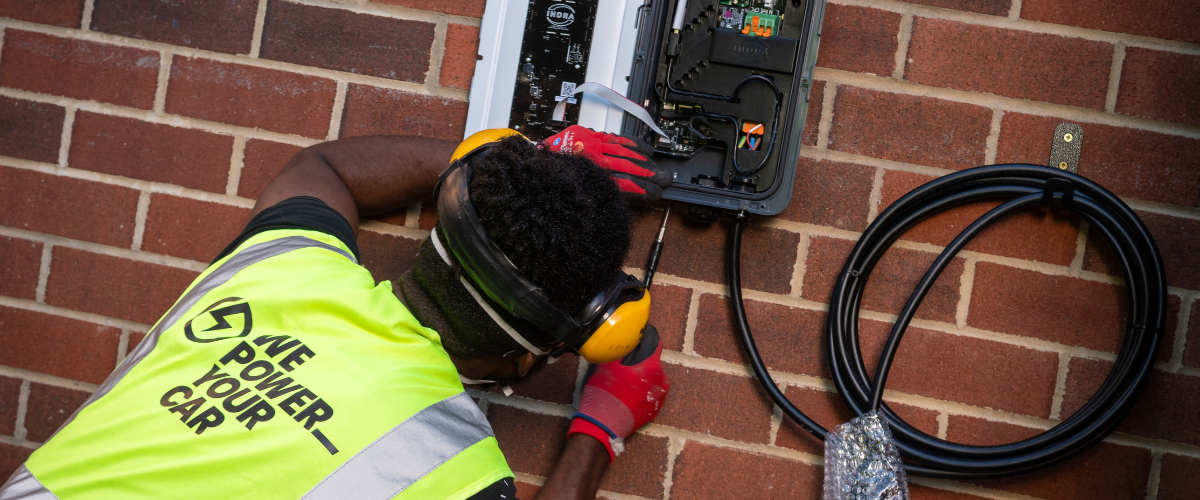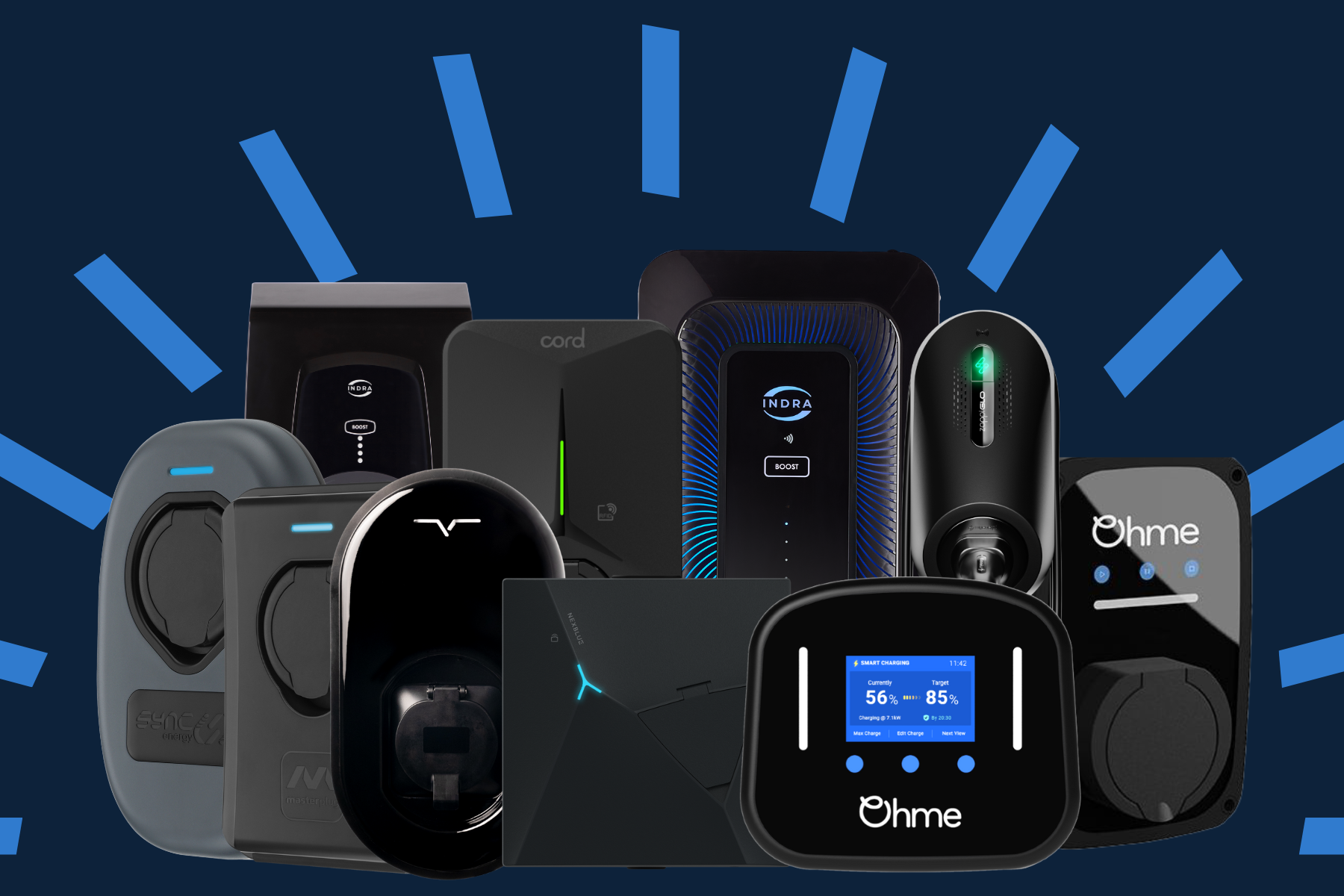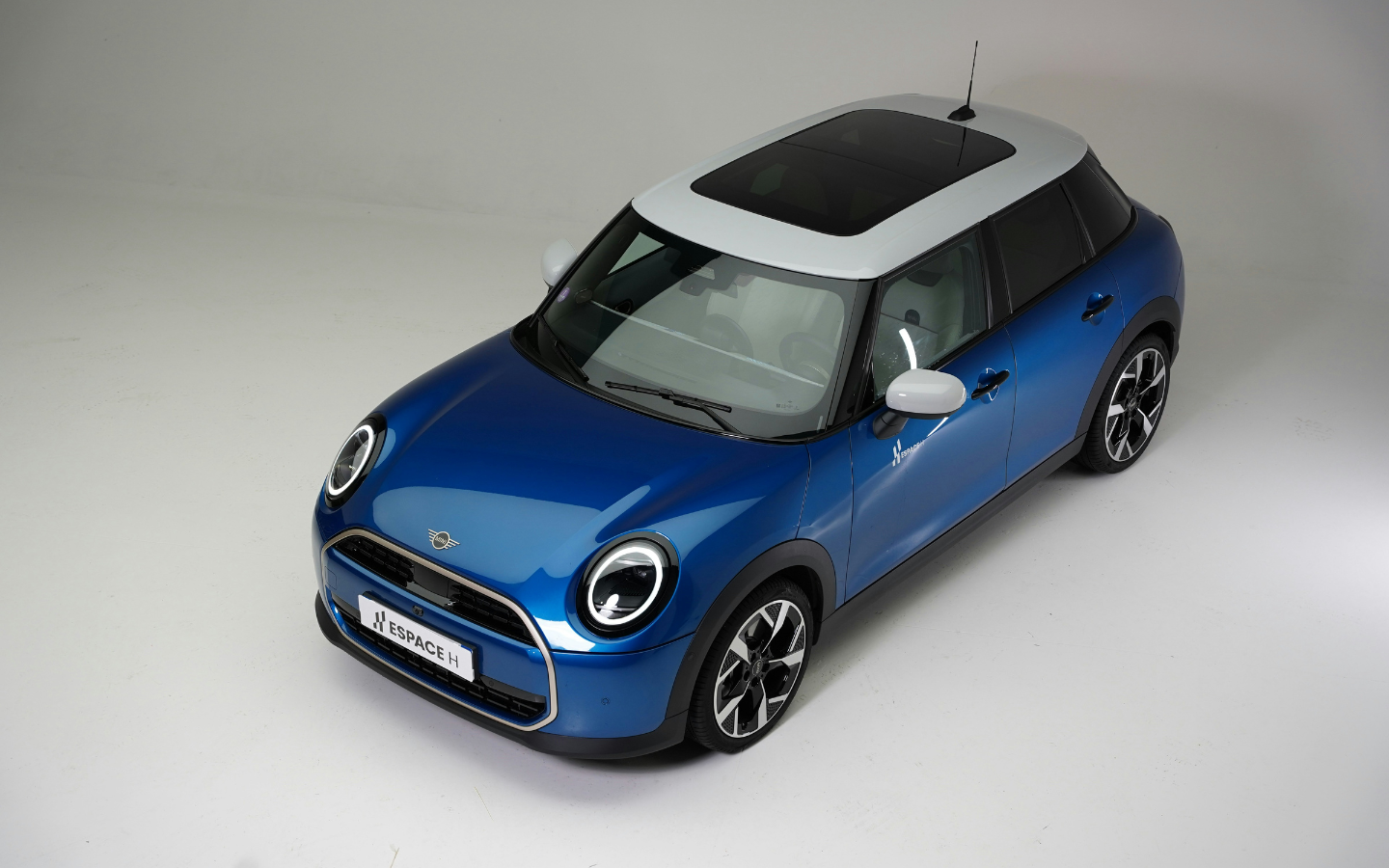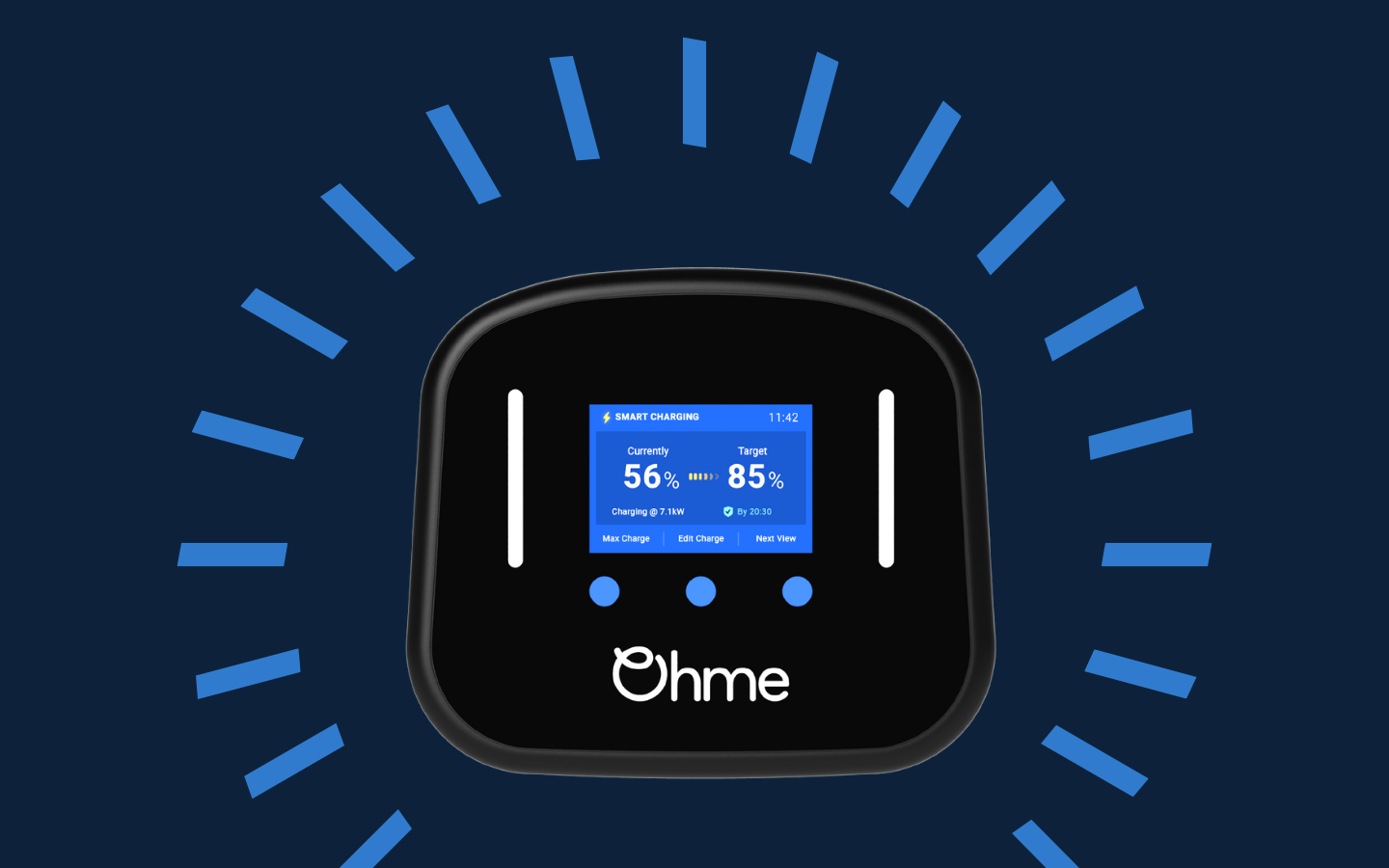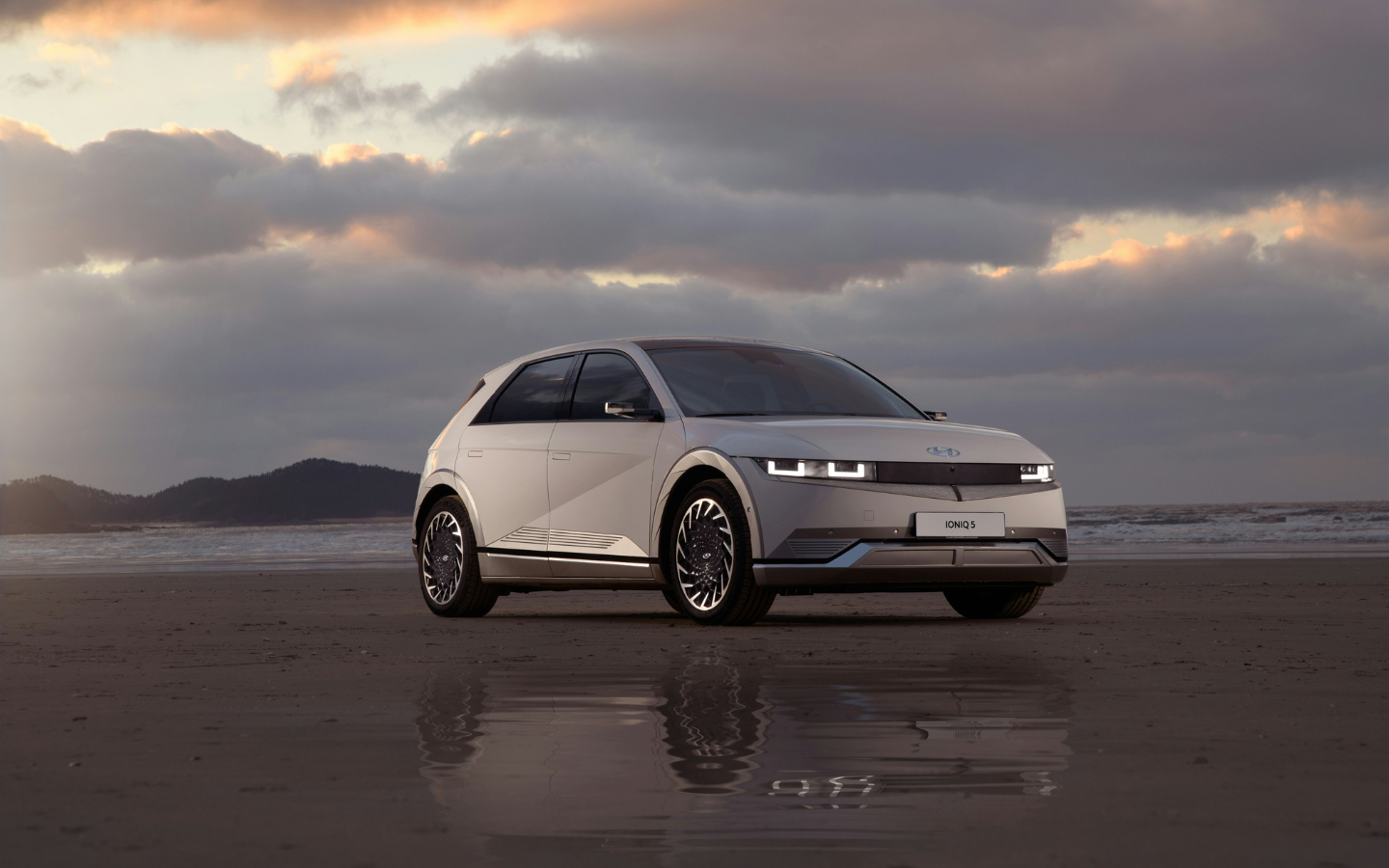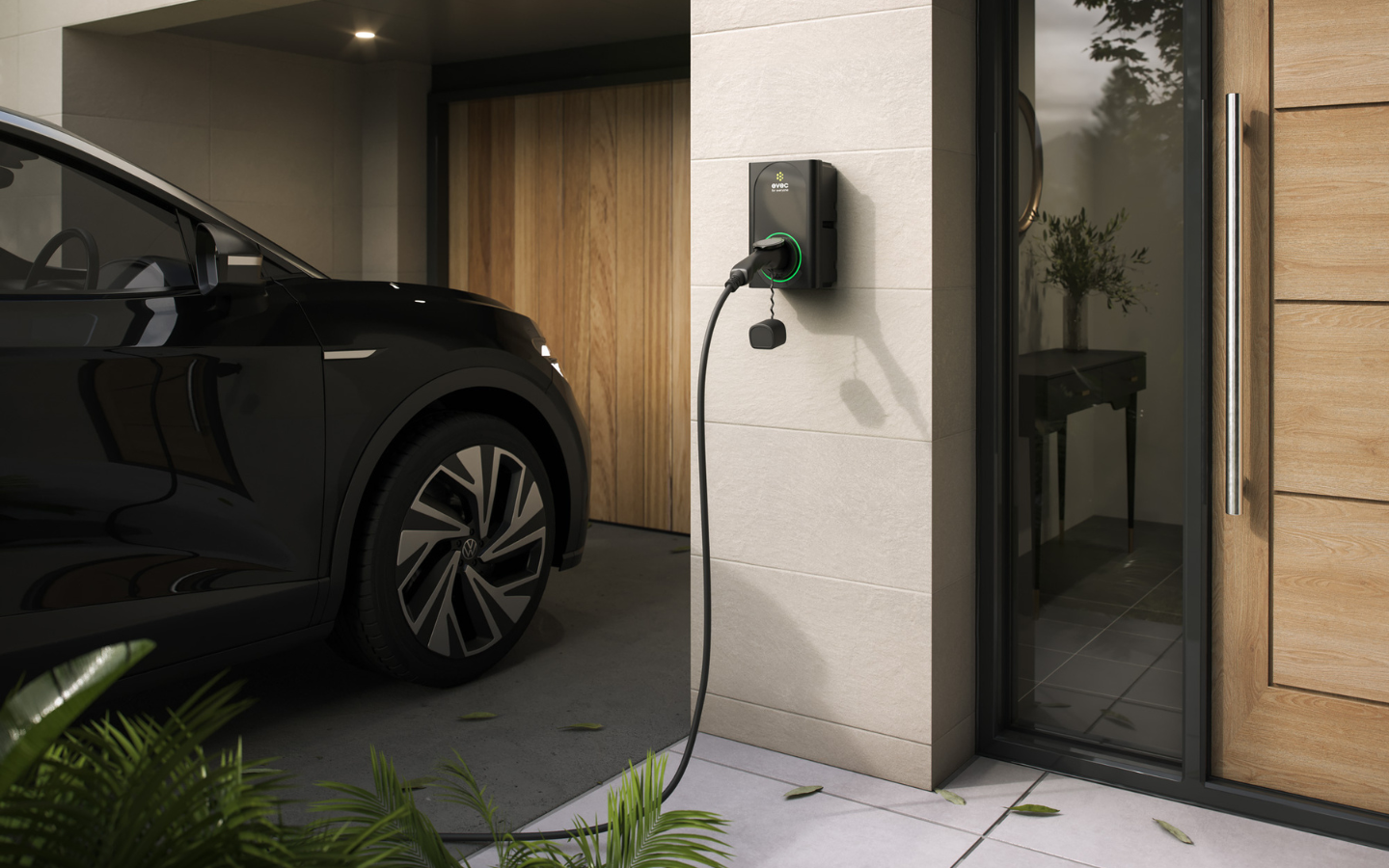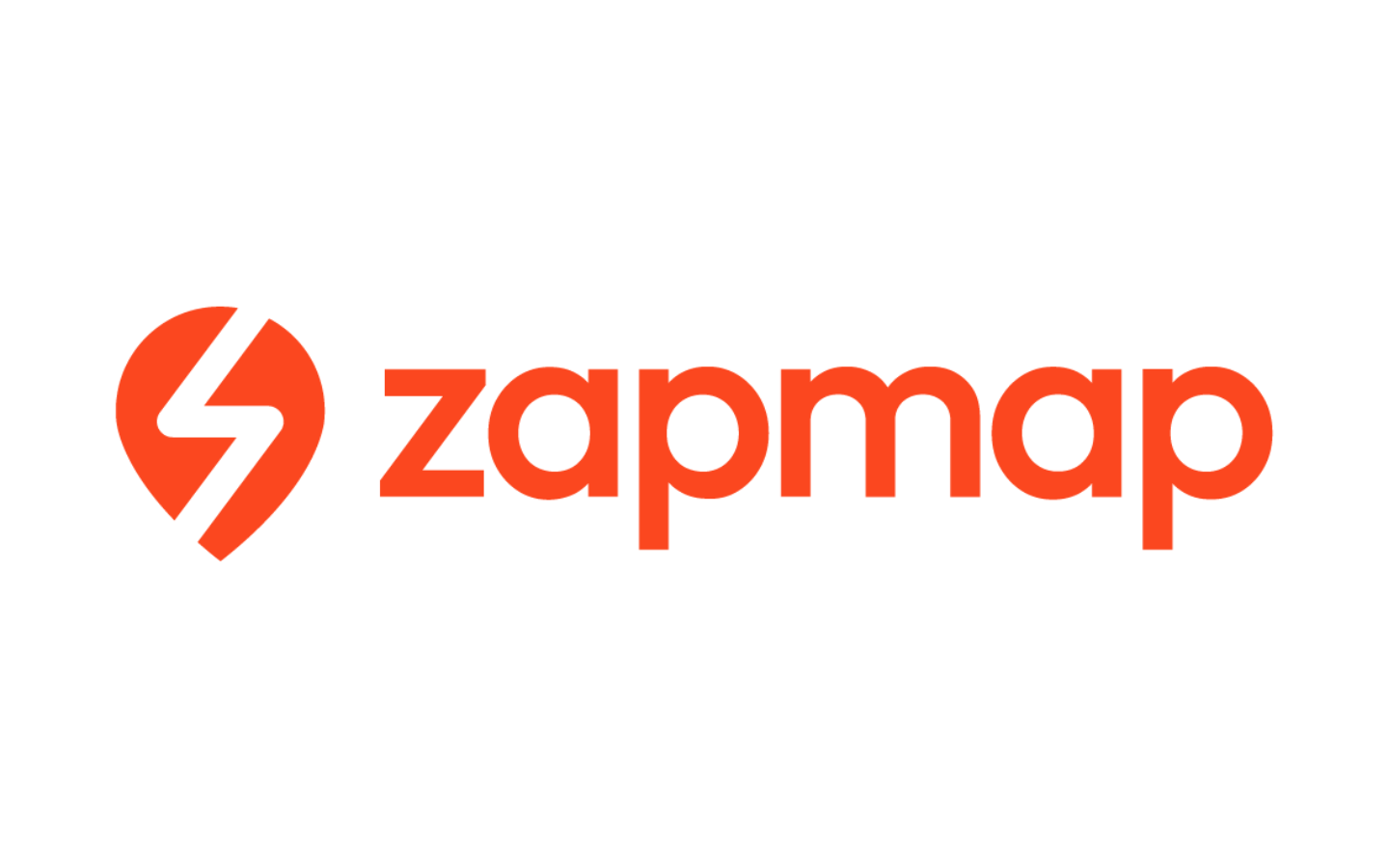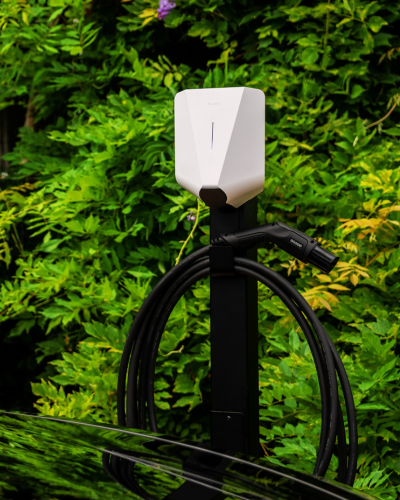
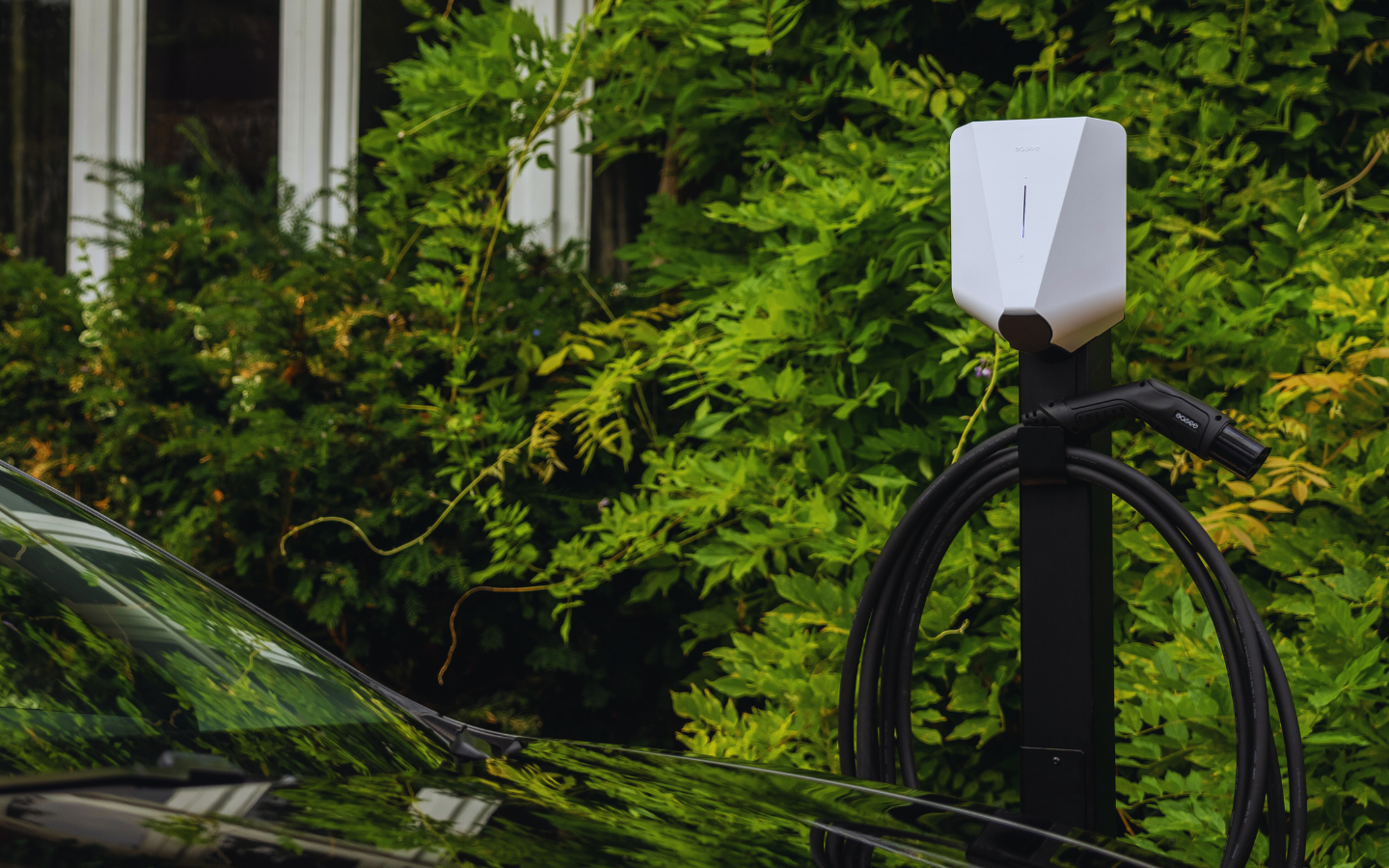
Three-Phase Home EV Charging Explained
We understand: you want to charge your electric car fast.
However, there is a limit to how fast you can charge your EV, especially at home with a dedicated EV charger.
And this is all to do with single-phase and three-phase power supplies.
Today, our article explains the difference between single-phase and three-phase charging in-depth. We’ll also discuss whether upgrading to three-phase is right for you, your electric car, and your home charging.
Quick summary:
- 3-phase EV charging uses a three-phase electricity supply to charge electric vehicles faster, offering speeds up to 22kW AC.
- Three-phase power supplies are ideal for commercial settings and homes with high power needs.
- Charging with three-phase power can reduce charging times. But it’s not essential for all electric vehicles, especially those that cannot support higher charging rates due to their maximum onboard charger rate.
- The main benefits of three-phase EV charging include quicker charging speeds and future-proofing your property for high-power demands.
- The core con of three-phase power supplies is their costly and complex nature.
- Overall, it may be worthwhile for households with multiple compatible electric vehicles or those planning to install other high-power appliances in the future. For others, the standard single-phase power supply, sufficient for overnight charging at 7kW, remains a practical choice.
What is 3-phase power in the UK?
In short, 3-phase EV charging uses a three-phase electricity supply to charge electric vehicles. Typically, three-phase power supplies are often found in commercial and workplace buildings but are rare in domestic properties.
Three-phase power supplies can charge your electric vehicle much faster than a single-phase power supply, between 11kW and 22kW, if your charge point and vehicle allow you to do so.
What’s the difference between single-phase and three-phase power?
Overall, single-phase and three-phase are two types of electricity supplies, differing mainly in power capacity.
To start, single-phase electricity is the standard in UK homes and has a smaller power capacity than three-phase. As a result, it delivers electricity more slowly, making it ideal for typical household needs.
On the other hand, three-phase electricity better accommodates higher loads due to a higher power capacity, delivering electricity faster and more powerfully. Typically, three-phase power is usually found in commercial or industrial buildings, but larger homes may also require three-phase power.
While a single-phase supply is usually sufficient for most households, properties needing higher power capacity may upgrade to a three-phase supply.
How to know if you have a three-phase power supply at home?
The best way to identify whether you have a three-phase power supply at home is to check your meter box. In short, a single-phase supply has one fuse, while a three-phase supply has three.
Single Phase Electricity Supply
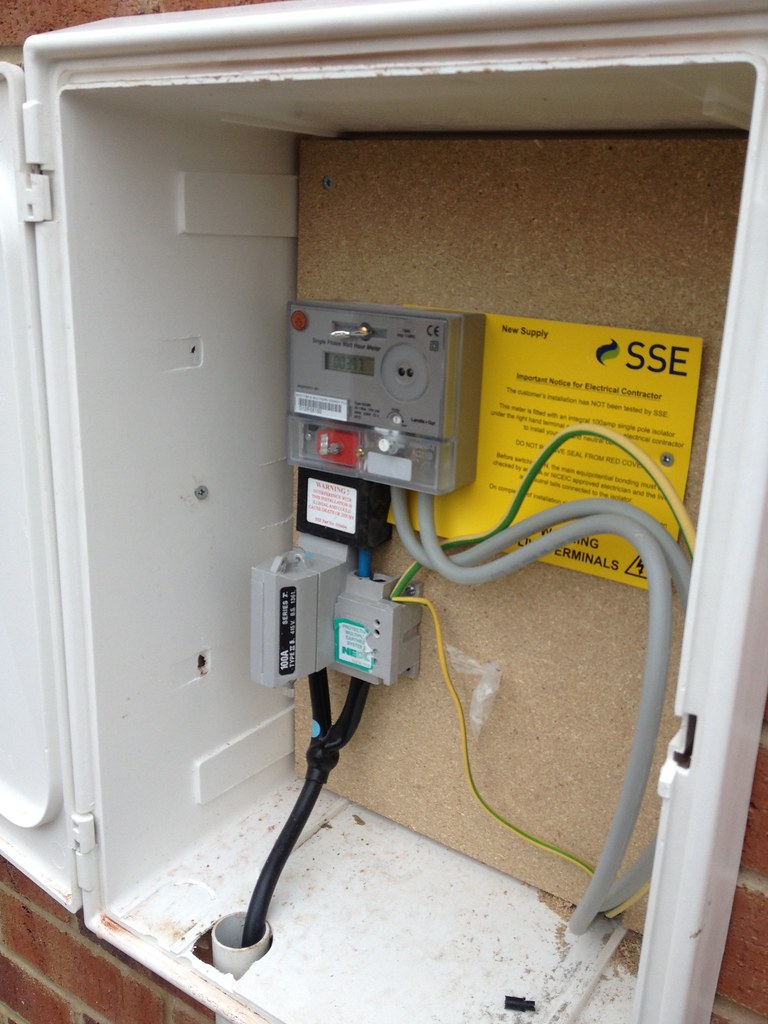
Three-Phase Electricity Supply
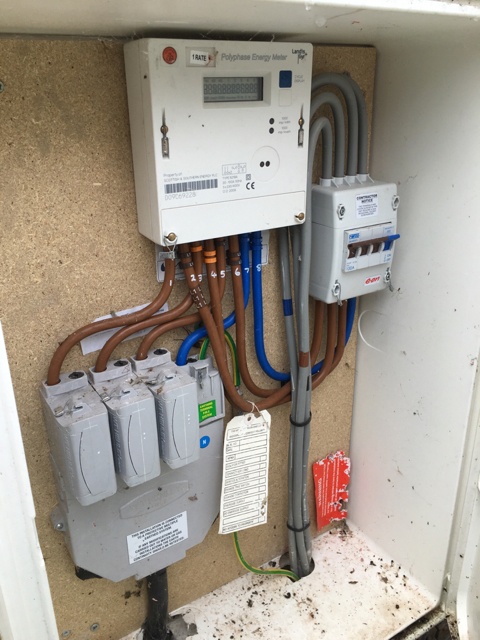
How much does upgrading to a 3-phase electricity supply cost?
Upgrading to a three-phase supply is very expensive, often costing thousands of pounds. On top of this, upgrading your electricity supply to three-phase can be a very time-consuming process.
To find out exactly how much it will cost to upgrade to three-phase, it’s best to contact your local Distribution Network Operator (DNO), as they are the ones who would carry out this upgrade.
Do you need a three-phase power supply to charge an electric car?
No, you don’t need to have a 3-phase EV charger. In fact, single-phase power suffices for the majority of electric car owners, as you can still use a 7kW home charger to charge your electric vehicle.
Three-phase power is only necessary if you want to charge at faster rates of 11kW or 22kW. You’ll need an 11kW or 22kW charger to charge at these higher rates.
How fast can a three-phase charger charge an EV?
How fast your EV will charge with a three-phase EV charging point depends on the speed of your EV charger (11kW or 22kW), and more importantly, your electric car. Why? Because the charging speed depends on the maximum charging rate of the EV.
Truthfully, some electric vehicles can’t accept 22kW AC charging rate due to their maximum charging rate. For example, the Vauxhall Corsa-e only has a maximum charging rate of 7.4kW, so it can only charge at this rate, even with 3-phase power. As such, a full charge with a Vauxhall Corsa-e will take up to 8 hours.
Is it better to charge electric cars with 3-phase or single-phase power?
Three-phase power charges an EV faster, but it is rare in UK homes and costly to upgrade if you don’t already have it.
Most people are fine with single-phase power and can charge their car with a 7kW EV charger in up to 8 hours.
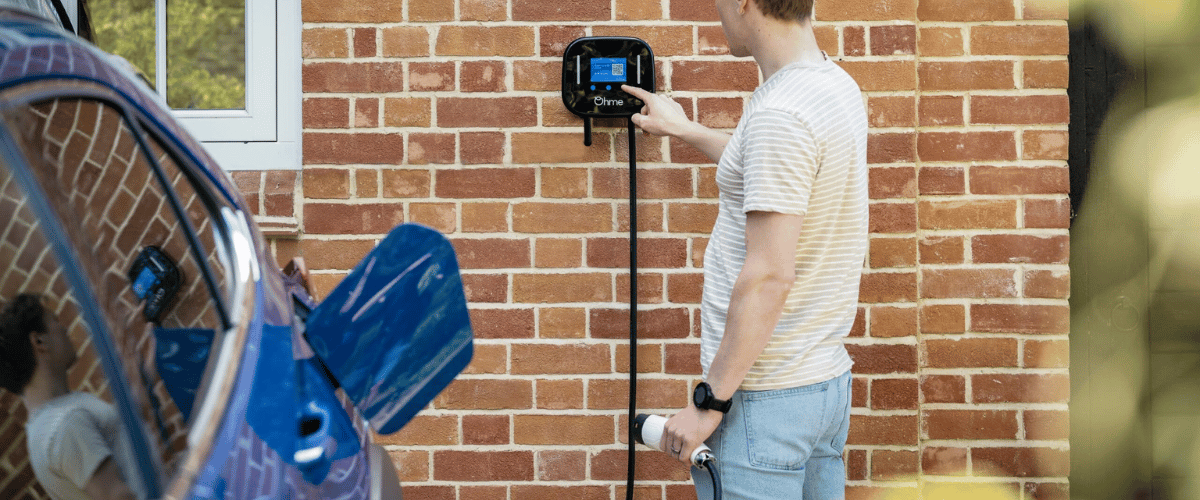
Which home EV chargers support three-phase charging?
The ability to use 3-phase home EV charging at 22kW depends on the type of charger.
It is important to note that not all EV chargers support three-phase charging, and most home EV chargers only support 7kW single-phase charging. But, we offer chargers such as the Easee Charge and Tesla Wall Connector, which work with three-phase power and have a higher charging capacity of up to 22kW.
If you are interested in a three-phase, 22kW home charger or have any questions, get your free quote, or contact us for more information or any queries you may have.
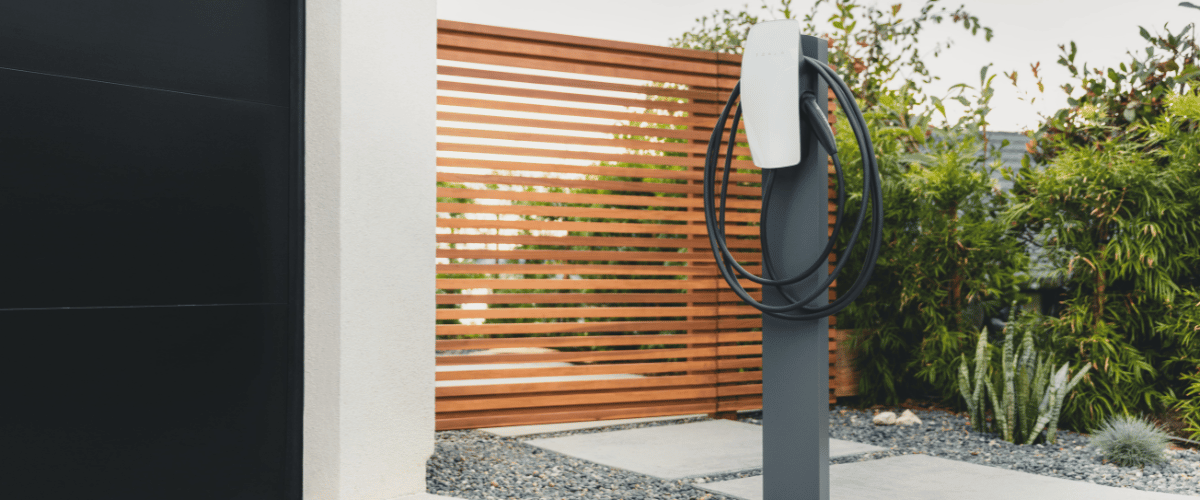
What are the pros and cons of a three-phase supply?
Pros of three-phase power supplies:
- With three-phase power, you, of course, have a higher power capacity than with single-phase power. So, you can charge your electric vehicle at a rate of up to 22kW. This is faster than charging at 7kW, the maximum charging rate with a single-phase supply. If you already have three-phase power and a car that accepts this higher charging rate, getting a car charger that supports 11kW or 22kW to enjoy faster charging speeds might be worthwhile.
- Three-phase power also prepares your property for future high-power needs. For example, if you plan to install other high-power appliances, such as hot tubs or heat pumps, you are future-proofed, as a three-phase supply will accommodate these higher loads.
Cons of three-phase power supplies:
- Upgrading to a three-phase supply costs thousands if you do not already have it.
- The installation process can also be very complex and may involve digging up the ground on your property to install new wiring.
- Public pavements may also have to be dug up, meaning you will need permission from your local authority before commencing. As such, the EV installation process can take months.
- Home chargers that support 11kW and 22kW three-phase EV charging usually cost more to buy and install than single-phase 7kW chargers.
- Your electric car must be able to accept 11kW to 22kW AC charging to benefit from the faster charging speeds of three-phase power. If your EV cannot accept this charging rate, there’s no point in upgrading to a three-phase supply, as your car will still charge at a slower rate of 7kW.
Is it worth upgrading to a three-phase electricity supply?
Getting a three-phase electricity supply to your home is not suitable for everyone. For example, if your electric car cannot accept 11kW or 22kW, there is no point investing in three-phase power, as you won’t be able to charge at this rate. As such, it is worth checking whether your vehicle can accept higher charging rates before upgrading to three-phase power.
Moreover, if you plan to charge your EV overnight, charging with single-phase power and a 7kW charger will suffice, as your car will be fully charged in the morning. If you need a faster charge in emergencies, you can use public charging points that offer 22kW EV charging.
However, for households with multiple EVs that can accept 22kW, it may be worth investing in a three-phase electricity supply if you both require a fully charged EV every night. With a faster charging rate of 22kW, you could charge one EV in the evening and the other overnight, meaning both cars would be fully charged in the morning.
Also, if you plan to get other high-power appliances, like a hot tub or sauna, upgrading to three-phase power will future-proof your property.
We recommend consulting with an EV charging expert or a qualified electrician before upgrading, as they can assess whether it is the right choice for you.
Cheaper, greener EV charging at your doorstep. Invest in a home EV charger.
Before upgrading to a three-phase supply, it’s best to talk to an expert.
Want our advice on three-phase charging or need a quote for a 7kW or 22kW EV charger installation? Click below to get your free quote, or contact us for more information or any queries you may have.
Alternatively, discover everything you need to know about electric car charger installation in our ultimate guide.
